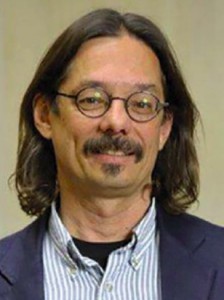Pozvánka
Česká asociace pro sociální antropologii
a
Masarykova česká sociologická společnost
ve spolupráci s
Etnologickým ústavem AV ČR, v.v.i.
Vás srdečně zvou na
149. GELLNEROVSKÝ SEMINÁŘ
Gellnerovský seminář založen Jiřím Musilem a Petrem Skalníkem v roce 1998
který se bude konat
ve čtvrtek 19. března 2015 od 16:30 hod.
v místnosti Havel (dříve Richter), vedlejší budova New York University v Praze
Malé náměstí 11, Praha 1 – Staré Město (1. posch., vchod z pasáže)
Vystoupí
Michael Kral
Associate Professor
School of Social Work, Wayne State University
na téma
The Return of the Sun:
Suicide and Suicide Prevention
among Inuit in Arctic Canada
Zdeněk UHEREK,v.r., Alena MILTOVÁ,v.r., Luděk BROŽ,v.r., Daniela PĚNIČKOVÁ,v.r.
Michael Kral
 is a clinical-community-cultural psychologist and medical anthropologist. He has been conducting participatory research with Inuit in Arctic Canada for 20 years on suicide, suicide prevention, kinship, culture change, and youth resilience. He has co-edited two books, Suicide in Canada and About Psychology: Essays at the Crossroads of History, Theory and Philosophy, is co-editing the book Critical Suicidology, and is writing the book Return of the Sun: Suicide and Social Transformation Among Inuit in Arctic Canada.
is a clinical-community-cultural psychologist and medical anthropologist. He has been conducting participatory research with Inuit in Arctic Canada for 20 years on suicide, suicide prevention, kinship, culture change, and youth resilience. He has co-edited two books, Suicide in Canada and About Psychology: Essays at the Crossroads of History, Theory and Philosophy, is co-editing the book Critical Suicidology, and is writing the book Return of the Sun: Suicide and Social Transformation Among Inuit in Arctic Canada.
Teaching Interests
- Culture and mental health
- Ethnography
- Community-based participatory action research
- Suicide
- Collaborative community ethnography
The Return of the Sun:
Suicide and Suicide Prevention among Inuit
in Arctic Canada
Indigenous peoples in the Arctic, including Canadian Inuit, have among the highest suicide rates in the world. It is primarily male youth who are killing themselves. The suicides began in the mid-1980s, and the rate continues to increase with 2013 being the worst year to date. Inuit lived in traditional family camps on the land until the 1960s, when the Canadian government took control of their lives. Inuit were moved into crowded settlements run by white government workers and their children were taken away to residential/boarding and day schools. A cash economy was started that with very few jobs created poverty. Older Inuit attribute their social problems to when they were moved to the settlements. Yet Inuit have begun to reclaim control over their lives, including having an Inuit political territory called Nunavut. Communities have begun on-the-ground sovereignty, including developing their own programs for suicide prevention. Several communities have reversed the suicide trend and have almost stopped suicides from taking place. I will discuss some of these communities, showing what Inuit have done for suicide prevention. Collaborative community-based action is the best strategy for Indigenous communities for their well-being.